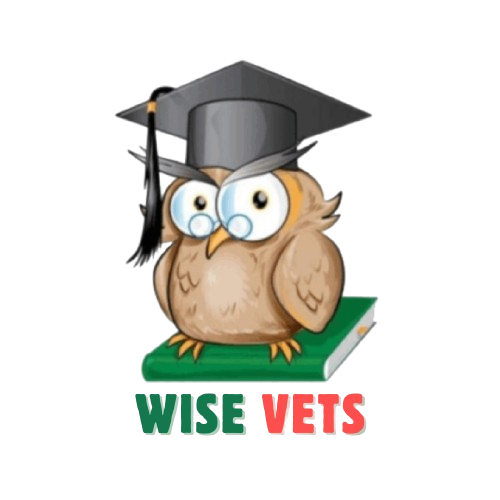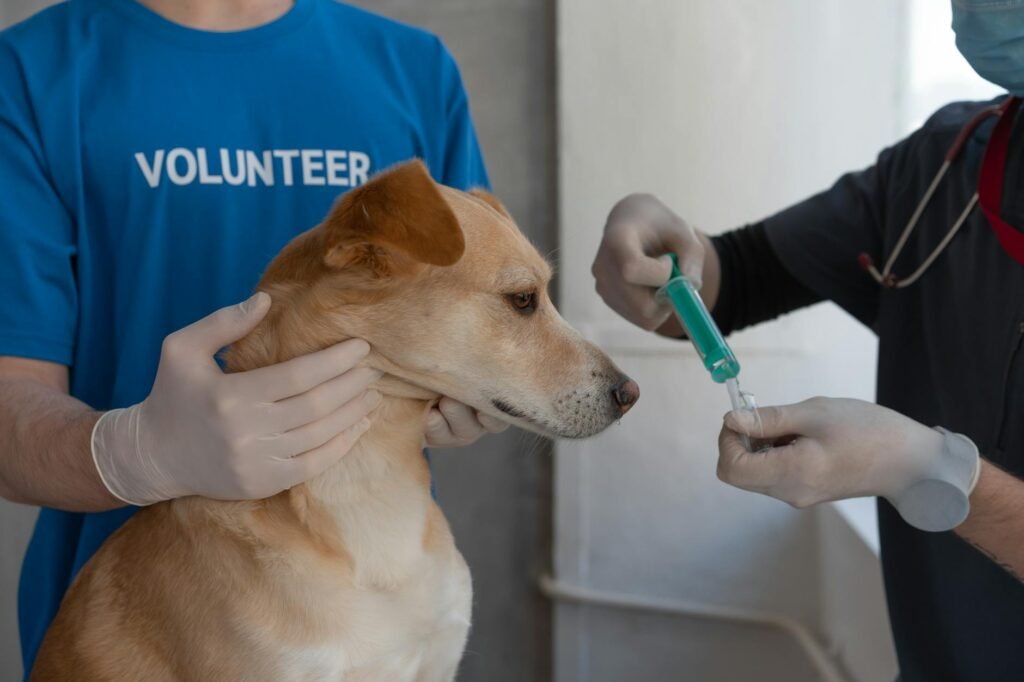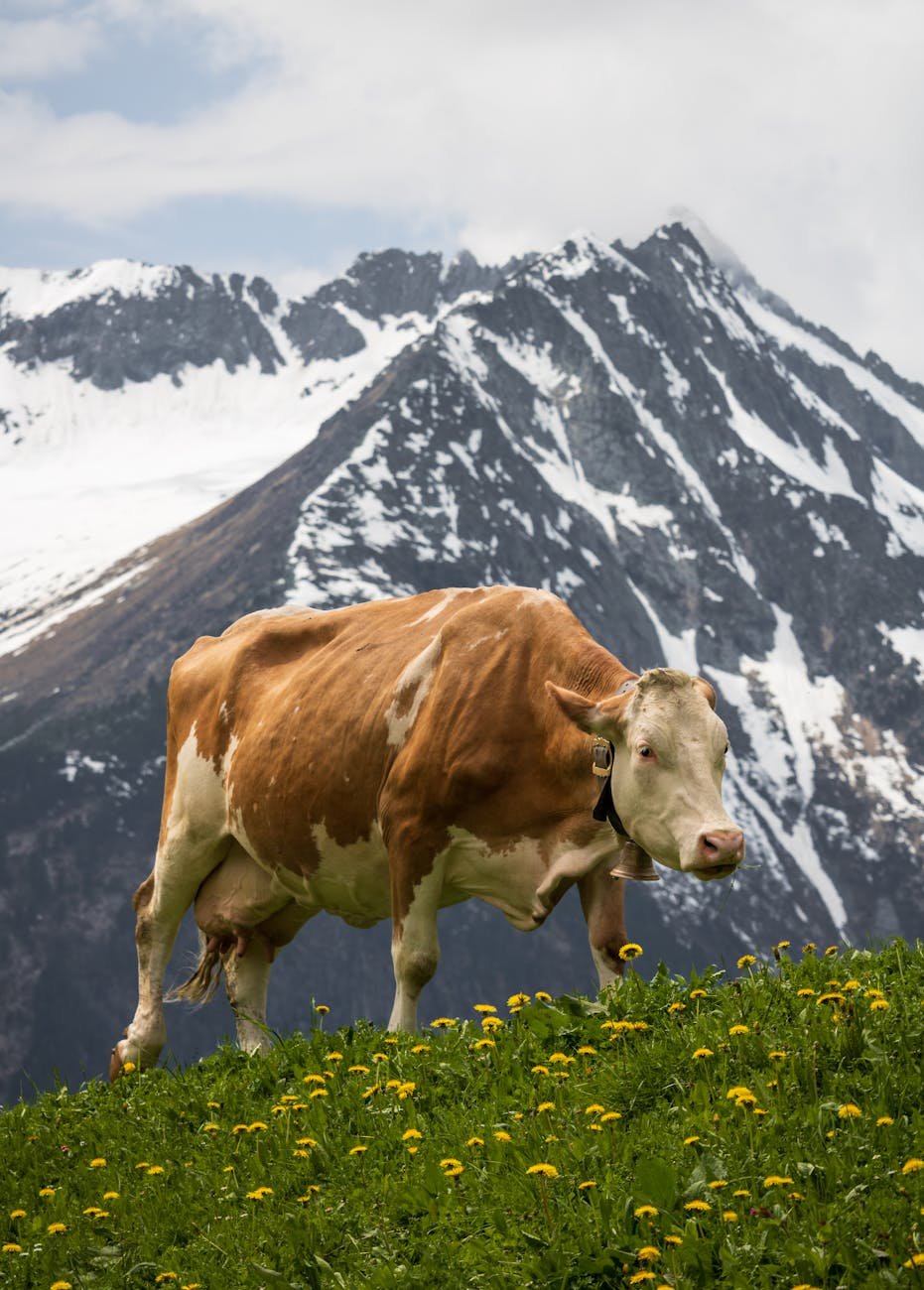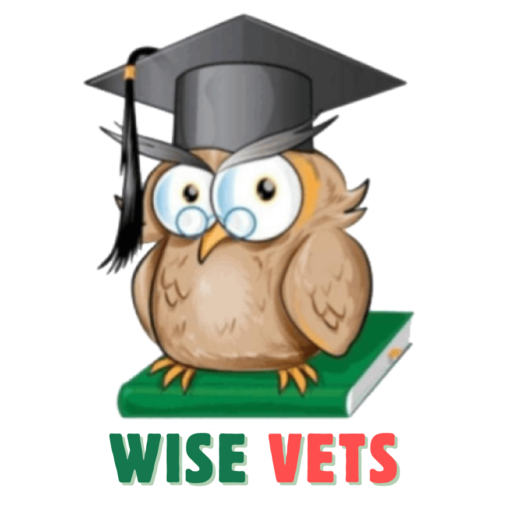The Path to Becoming a Veterinarian
Embarking on the journey to become a veterinarian involves a series of educational and professional steps. Understanding these requirements helps aspiring animal doctors plan their career paths effectively.
Education Requirements
To start a career in veterinary medicine, one must first obtain a bachelor’s degree. This undergraduate education typically spans four years and includes courses in biology, chemistry, physics, and mathematics. Gaining experience through volunteering or working in animal-related fields can also be beneficial.
After completing an undergraduate degree, the next step is enrolling in a veterinary school. Veterinary Medical Education in the U.S. involves an additional four years of study beyond the undergraduate degree to obtain a D.V.M. (Doctor of Veterinary Medicine) or V.M.D. (Veterinariae Medicinae Doctoris) degree.
Duration of Veterinary School
Veterinary school typically requires four years to complete. However, some programs, such as Ross University’s year-round Doctor of Veterinary Medicine (DVM) degree program, allow students to complete their degree in as few as 3.25 years (Ross University School of Veterinary Medicine). This accelerated path can be an attractive option for those eager to start their careers sooner.
| Program | Duration |
|---|---|
| Traditional Veterinary Program | 4 years |
| Ross University DVM | 3.25 years |
After obtaining the D.V.M. or V.M.D. degree, aspiring veterinarians must pass the North American Veterinary Licensing Examination (NAVLE) to practice in the United States (Penn State University). This exam ensures that candidates meet the necessary standards to provide quality care to animals.
For those interested in learning more about specific veterinary programs, check the sections on Ross University School of Veterinary Medicine and other veterinary schools worldwide.
By completing these educational steps, aspiring veterinarians can pave the way toward a rewarding career in veterinary medicine. This journey requires dedication and passion for animal care, but the end result is a fulfilling profession as a veterinary doctor.
Specialization in Veterinary Medicine
For those pursuing an animal doctor course, specialization in veterinary medicine offers an opportunity to deepen their expertise and enhance their career prospects. Specialization typically involves additional training and residency programs.
Additional Training
After obtaining a Doctor of Veterinary Medicine (DVM) or Veterinary Medical Doctor (VMD) degree, veterinarians may choose to specialize in a particular field. This requires additional training beyond the general veterinary curriculum. There are currently 22 AVMA-recognized veterinary specialties (Penn State University), which include:
- Internal Medicine
- Surgery
- Dermatology
- Pathology
- Anesthesia
- Radiology
- Cardiology
- Behavior
Veterinarians seeking specialization must complete a rigorous training program, which typically includes both coursework and hands-on clinical experience. This additional training is essential for gaining the advanced knowledge and skills needed to excel in a specialized area of veterinary medicine.
Residency Programs
Residency programs are a crucial component of the specialization process. Most residency programs last three years, although the length may vary depending on the specialty chosen (Ross University School of Veterinary Medicine). These programs are designed to provide in-depth training and practical experience in a specific field of veterinary medicine.
During a residency program, veterinarians work under the supervision of experienced specialists. They participate in clinical rotations, conduct research, and gain hands-on experience in diagnosing and treating complex cases. Residency programs also prepare veterinarians for board certification, which is often required to become a recognized specialist in their chosen field.
| Specialization | Duration of Residency (Years) |
|---|---|
| Internal Medicine | 3 |
| Surgery | 3-4 |
| Dermatology | 3 |
| Pathology | 3 |
| Anesthesia | 3 |
| Radiology | 3 |
| Cardiology | 3 |
| Behavior | 3 |
Upon completing a residency program, veterinarians may pursue board certification by passing a series of examinations administered by a recognized specialty board. Board certification is a testament to the veterinarian’s expertise and dedication to their chosen field.
Specializing in veterinary medicine opens doors to a variety of career opportunities, including positions in private practices, research institutions, government agencies, and animal welfare organizations. For more information on the scope of veterinary careers, visit our section on career outlook for veterinarians.
For those interested in veterinary studies in India, the curriculum includes subjects such as Veterinary Anatomy, Veterinary Physiology, Animal Nutrition, Veterinary Microbiology, and Veterinary Pathology in the initial years. The final year covers Veterinary Surgery, Radiology, Gynecology, Obstetrics, and Veterinary Medicine (Quora). The degree program is 5 1/2 years long, including a 1-year internship.
By pursuing additional training and residency programs, veterinarians can specialize in a field that aligns with their interests and career goals. This not only enhances their expertise but also contributes to the advancement of veterinary medicine as a whole.
Veterinary Programs Worldwide
Aspiring veterinarians can choose from a variety of renowned veterinary programs worldwide. Here, we explore some of the top institutions offering animal doctor courses.
Ross University School of Veterinary Medicine
Located in St. Kitts, the Ross University School of Veterinary Medicine provides a rigorous curriculum that prepares students for careers in veterinary medicine. With a focus on practical experience, students benefit from state-of-the-art facilities and a diverse learning environment.
University of Nairobi
The University of Nairobi offers comprehensive veterinary programs recognized by the Kenya Veterinary Board. The university provides a solid foundation in veterinary science, combining classroom learning with hands-on clinical practice.
Egerton University
Egerton University, approved by the Kenya Veterinary Board, is another prominent institution for veterinary studies in Kenya. The university offers a robust curriculum that covers various aspects of animal health and veterinary medicine.
Jomo Kenyatta University of Science and Technology
Jomo Kenyatta University of Science and Technology, also recognized by the Kenya Veterinary Board, provides excellent veterinary programs. The university focuses on innovative research and practical training to equip students with the necessary skills for a successful career in veterinary medicine.
Kenya YMCA College of Agriculture and Technology
The Kenya YMCA College of Agriculture and Technology offers specialized courses in animal health and veterinary science. Approved by the Kenya Veterinary Board, this institution provides a mix of theoretical knowledge and practical experience.
Maasai Mara University
Maasai Mara University is another reputable institution approved by the Kenya Veterinary Board. The university offers comprehensive programs in veterinary medicine, emphasizing both academic excellence and practical skills.
University of Liverpool’s School of Veterinary Science
The University of Liverpool’s School of Veterinary Science is one of the leading veterinary schools in the UK. Accredited by the AVMA, the university provides a world-class education in veterinary medicine, with a strong focus on research and clinical practice.
VetAgro Sup in France
VetAgro Sup, located in France, is an esteemed institution accredited by the AVMA. The university offers a comprehensive veterinary program that combines rigorous academic training with hands-on clinical experience.
For more information about veterinary programs, visit our pages on veterinary college and vet science colleges.
| University | Location | Accreditation |
|---|---|---|
| Ross University School of Veterinary Medicine | St. Kitts | AVMA |
| University of Nairobi | Kenya | Kenya Veterinary Board |
| Egerton University | Kenya | Kenya Veterinary Board |
| Jomo Kenyatta University of Science and Technology | Kenya | Kenya Veterinary Board |
| Kenya YMCA College of Agriculture and Technology | Kenya | Kenya Veterinary Board |
| Maasai Mara University | Kenya | Kenya Veterinary Board |
| University of Liverpool’s School of Veterinary Science | UK | AVMA |
| VetAgro Sup | France | AVMA |
These institutions provide excellent opportunities for those looking to pursue a career in veterinary medicine, offering diverse programs and comprehensive training. For more details on specific courses and admission requirements, visit veterinary course and veterinary medicine.
Career Outlook for Veterinarians
Understanding the career outlook for veterinarians is essential for those pursuing an animal doctor course. This section will cover the median annual wage, job growth projection, and various work settings available for veterinary professionals.
Median Annual Wage
Veterinarians are well-compensated for their expertise and dedication to animal health. According to the Bureau of Labor Statistics, the median annual wage for veterinarians was $119,100 in May 2023. This figure reflects the earnings of veterinarians across various specializations and work environments.
| Year | Median Annual Wage |
|---|---|
| 2023 | $119,100 |
Job Growth Projection
The demand for veterinarians is on the rise. Employment of veterinarians is projected to grow 20 percent from 2022 to 2032, which is much faster than the average for all occupations. On average, about 5,000 openings for veterinarians are projected each year over the decade. This growth is driven by the increased need for veterinary services, particularly in pet care and food safety.
| Year Range | Job Growth Projection |
|---|---|
| 2022-2032 | 20% |
Work Settings
Veterinarians have the opportunity to work in a variety of settings. Most veterinarians work in private clinics and hospitals, where they provide care for pets and other animals. Some veterinarians travel to farms to care for livestock, while others work in unique environments such as laboratories, classrooms, or zoos (Bureau of Labor Statistics).
| Work Setting | Description |
|---|---|
| Private Clinics and Hospitals | Provide care for pets and other animals in a clinical setting. |
| Farms | Travel to farms to care for livestock such as cows, horses, and pigs. |
| Laboratories | Conduct research and work on disease prevention and control. |
| Classrooms | Teach veterinary science courses at colleges and universities. |
| Zoos | Care for exotic animals and contribute to conservation efforts. |
For more detailed information on specific veterinary programs and courses, visit our pages on veterinary college, vet science colleges, and veterinary course.
Licensing and Accreditation
To practice as a veterinarian, it is crucial to understand the licensing and accreditation process. The standards set by accrediting bodies ensure that veterinary programs provide quality education and training to produce competent veterinary doctors.
Educational Standards
The American Veterinary Medical Association (AVMA) Council on Education (COE) sets the highest standards of achievement for veterinary medical education through accreditation. Institutions that earn AVMA COE accreditation demonstrate a commitment to quality and continuous improvement through a rigorous peer review process.
The AVMA COE expects that 80% or more of each college’s graduating senior students sitting for the North American Veterinary Licensing Examination (NAVLE) will have passed at the time of graduation. Other student educational outcomes are also considered in assessing compliance with this standard (AVMA).
Accreditation Process
The accreditation process involves a comprehensive evaluation of veterinary programs. This includes an assessment of the institution’s curriculum, faculty, facilities, and educational outcomes. The AVMA COE conducts site visits and reviews self-evaluation reports submitted by the institutions.
Here’s a comparison of the accreditation status of some prominent veterinary schools:
| Veterinary School | Country | Accreditation Status | Initial Accreditation Date | Next Evaluation |
|---|---|---|---|---|
| University of Liverpool’s School of Veterinary Science | United Kingdom | Accredited | March 2, 2023 | 2030 |
| VetAgro Sup | France | Accredited with minor deficiencies | September 26, 2013 | 2030 |
Figures courtesy AVMA
For more detailed information on accredited veterinary colleges, check out our articles on veterinary college and vet science colleges.
Accreditation ensures that veterinary programs meet the necessary standards to equip students with the skills and knowledge required to excel in the field of veterinary medicine. This process is crucial for maintaining the quality and integrity of veterinary education worldwide.
Veterinary Courses in India
Admission Requirements
To enroll in an animal doctor course in India, candidates must meet specific educational prerequisites. Typically, students must have completed Class 12 in the Science stream with Physics, Chemistry, and Biology (PCB) with a minimum of 55% (Shiksha). Admission to the undergraduate (UG) Veterinary course can be based on either Class 12 or NEET scores. For postgraduate (PG) courses, admission is generally based on ICAR AIEEA scores.
| Admission Criteria | Requirements |
|---|---|
| Educational Qualification | Class 12 in PCB with a minimum of 55% |
| UG Course Admission | Class 12 scores or NEET scores |
| PG Course Admission | ICAR AIEEA scores |
Course Curriculum
The veterinary course curriculum is designed to provide comprehensive knowledge and practical skills required for a successful career in veterinary medicine. The curriculum typically includes core subjects, practical training, and specialization options.
Core Subjects
- Anatomy of Animals
- Physiology
- Biochemistry
- Pharmacology
- Pathology
- Microbiology
- Surgery
- Reproduction
Practical Training
- Laboratory Work
- Clinical Practice
- Fieldwork
- Internships
Specialization Options
- Animal Nutrition
- Veterinary Surgery
- Veterinary Medicine
- Animal Biotechnology
The course structure aims to equip students with the necessary skills to diagnose, treat, and manage various animal health issues.
Job Opportunities
Graduates of veterinary courses have a broad range of career opportunities available to them. They can pursue roles such as Animal Anatomists, Animal Chiropractors, Animal Doctors, and Animal Pathologists (Shiksha). The salary for veterinary professionals in India varies based on experience, location, type of practice (private or government), and specialization.
| Experience Level | Monthly Salary (INR) |
|---|---|
| Entry-Level | 20,000 – 40,000 |
| Mid-Level | 40,000 – 70,000 |
| Senior-Level | 70,000 – 1,50,000 |
Veterinary graduates can work in various settings including private clinics, animal hospitals, research institutions, government agencies, and animal welfare organizations. The demand for veterinary professionals is growing both in India and abroad, making it a promising career path.
For more detailed information about veterinary colleges in India, check out our page on vet science colleges.
By meeting the admission requirements, completing the rigorous curriculum, and exploring diverse job opportunities, aspiring veterinarians can build a rewarding career in the field of veterinary medicine.
Preparing for Veterinary School
Aspiring veterinarians need to be well-prepared for the rigorous journey ahead. This preparation includes focusing on recommended subjects, managing stress effectively, and ensuring a well-rounded education.
Recommended Subjects
To successfully get into a veterinary college, students should prioritize certain subjects during their pre-veterinary education. Essential courses include:
- Biology
- Biochemistry
- Physiology
- Genetics
- Chemistry
- Organic Chemistry
- Physics
- Algebra
- Statistics
- Animal Sciences
- Nutrition
- Production
Additionally, courses in Language Arts, Business, Social Sciences, and other diverse fields are beneficial for a well-rounded education. Some universities might also have specific requirements; for example, the Veterinary and Biomedical Sciences Program at Penn State includes all the necessary courses for admission to most vet schools.
Stress Management
Veterinary school is known for its demanding and intense curriculum. Effective stress management is crucial for maintaining mental and physical health throughout this rigorous training. Here are some strategies:
- Time Management: Prioritize tasks and create a balanced schedule.
- Physical Activity: Regular exercise can help reduce stress levels.
- Mindfulness Techniques: Practices like meditation and deep breathing can enhance focus and calm.
- Support Systems: Building a network of supportive friends, family, and mentors is essential.
Importance of a Well-Rounded Education
While excelling in core scientific subjects is crucial, a well-rounded education can provide significant benefits. Completing a 4-year degree, even if it takes longer than usual, can offer a broader educational experience, making the college years more enjoyable and providing a solid foundation for the challenges ahead (Quora). Courses in humanities, social sciences, and business can enhance communication skills, critical thinking, and understanding of diverse perspectives.
| Subject | Importance |
|---|---|
| Biology | Essential for understanding animal physiology and genetics |
| Chemistry | Crucial for grasping biochemical processes |
| Physics | Important for understanding basic principles of animal movement and machinery |
| Mathematics | Optional but beneficial for statistical analysis and problem-solving |
| Language Arts | Enhances communication skills |
| Business | Useful for managing veterinary practices |
For more information on preparing for veterinary school and the veterinary science curriculum, explore our related articles on veterinary course and vet medicine.
Advice for Aspiring Veterinarians
Completing a 4-Year Degree
Aspiring veterinarians are encouraged to complete a 4-year undergraduate degree before entering veterinary school. This degree can be in any field, but it is beneficial to focus on subjects related to veterinary science, such as biology, chemistry, and animal studies. Completing a bachelor’s degree not only fulfills the prerequisites for veterinary school but also provides a solid academic foundation.
Most U.S. veterinary schools require specific college courses. The Veterinary and Biomedical Sciences Program at Penn State, for example, includes all the required courses for admission to most veterinary programs. Here is a typical course load for an aspiring veterinarian:
| Subject | Recommended Credits |
|---|---|
| Biology | 8-12 |
| Chemistry | 8-12 |
| Physics | 4-8 |
| Mathematics | 4-8 |
| Animal Studies | 4-8 |
For more detailed information on veterinary education, visit our veterinary college and vet science colleges sections.
Balancing Education and Enjoyment
While academic excellence is crucial, it is equally important to balance education with enjoyment. Veterinary school is rigorous and demanding, often leading to high stress levels. Therefore, taking time to enjoy college years can provide a well-rounded experience and help in coping with the intense stress of veterinary school and career (Quora).
Here are some tips for balancing education and enjoyment:
- Extracurricular Activities: Engage in activities and clubs related to veterinary medicine, such as animal shelters or veterinary student organizations. This not only enhances your resume but also provides practical experience.
- Social Life: Maintaining a social life is essential for mental health. Building a support network of friends and family can provide emotional support during challenging times.
- Hobbies and Interests: Pursue hobbies and interests outside of your academic field. Whether it’s sports, arts, or music, having a creative outlet can help relieve stress.
- Time Management: Develop strong time management skills to balance studies, extracurricular activities, and personal time effectively.
For more guidance on preparing for veterinary school, check out our articles on veterinary course and veterinary medicine.
By following these steps, aspiring veterinarians can prepare themselves for a successful career while enjoying their educational journey. For additional advice and resources, explore our sections on veterinary doctor course and animal studies.






